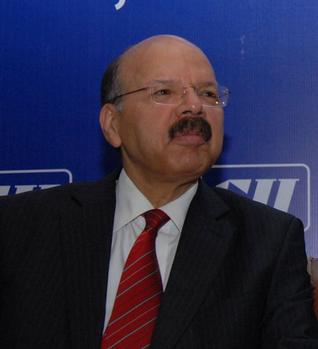
Prime Minister Manmohan Singh has already approved his file.
Similarly, Vice-President Hamid Ansari’s Secretary Shumsherj K Sheriff, a 1977 batch IAS officer of the Arunachal Pradesh-Goa-Mizoram and Union Territory Cadre (AGMU), who was the front runner for the new Election Commissioner in June, is being appointed as the new Secretary-General of Rajya Sabha as the incumbent Vivek Kumar Agnihotri is demitting office in the next few weeks. Sixty-six year old Agnihotri is already on extension.
Mr. Sheriff is getting elevated as Mr. Ansari is being fielded as the UPA candidate in the Vice-Presidential poll and he is likely to retain the office in the August 7 election.
Mr. Zaidi superannuated as Civil Aviation Secretary on July 31 and once he becomes the Election Commissioner, he could be in Nirvachan Sadan till July 6, 2017. A native of Uttar Pradesh, Mr. Zaidi had earlier worked as Director-General of Civil Aviation, and was India’s representative in the International Civil Aviation Organisation. He was also the Joint Secretary in the Civil Aviation ministry, Commissioner of Bareilly Development Authority and Collector of Ghaziabad and Farukkhabad districts in Uttar Pradesh. His first posting after becoming an IAS officer was as an Assistant Collector of Unnao district.
The vacancy in three-member Election Commission was caused due to the demitting of office by then Chief Election Commissioner S.Y. Quraishi on June 10. In his place senior most EC V.S. Sampath was appointed. Mr. H.S. Brahma is the other EC.
Mr. Sheriff had earlier worked in the Rashtrapathi Bhavan too and as Chief Secretary to Andaman and Nicobar Islands. He originally belongs to a family hailing from Vaniyambadi town in Vellore district of Tamil Nadu.





Comments
Add new comment